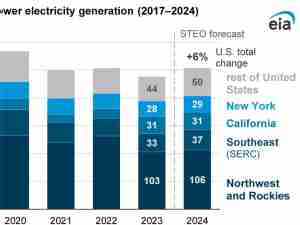Billionaire Pipemaker Touts Jobs Over Imports in Trump’s America
By: David Wethe | Mar 28 2017 at 12:01 AM | International Trade
President Donald Trump’s “America First” approach to energy doesn’t scare Paolo Rocca.
The billionaire steel tycoon who controls Tenaris SA, the world’s largest maker of seamless-steel pipes for the energy industry, expects the creation of American jobs at his $2.3 billion plant in Texas will allow his company to continue to import certain types of pipes into the U.S. The pipe-making plant is due to open this fall in Bay City to serve the shale wells.
Rocca is joining an array of investors and oil industry giants racing to get a piece of the action amid a resurgence of shale drilling in the U.S., like real-estate mogul Sam Zell and oil major Exxon Mobil Corp. His engineering, steel and energy conglomerate is also investing $2.3 billion in Argentina’s Vaca Muerta shale formation to drill 150 wells in the world’s second-biggest reserves of shale gas and fourth-biggest of shale oil.
Rocca said his team has received encouraging feedback from the Trump administration, and that the president’s bottom line is jobs, with the new plant creating 600 positions. And it doesn’t hurt that a member of the Trump cabinet, Energy Secretary Rick Perry, championed Tenaris’ investment decision when he was governor of the Lone Star State.
Positive Feedback
“The creation of employment that comes from the Bay City Mill is something very relevant for Texas,” Rocca, who’s chairman and chief executive officer of Tenaris, said Monday in an interview at the Scotia Howard Weil Energy Conference in New Orleans. “The present administration, when we explain the size of our investment, we immediately understand we are going in exactly the direction in which they would like the industry to go. This is really the feedback we are receiving.”
Tenaris imports steel tubes from Italy, Mexico and Argentina to serve the needs of explorers in the U.S. Gulf of Mexico. The Bay City plant was never designed to churn out larger pipes used in offshore wells, Rocca said.
“We cannot have the scale of production of every product in the States,” he said. “But you can have the major part of your immense supplies from the United States. This is exactly in line with what the administration would like to have from the industrial deployment.”
In January, Trump signed a presidential memo compelling the Commerce Department to take up to six months to develop a plan that would force new, retrofitted and expanded U.S. pipelines to use iron, steel and other materials made in the country. Under that document, if the pipe is made with steel or iron partially finished outside the U.S. it shouldn’t count. It has to be produced in the U.S. “from the initial melting stage through the application of coatings,” Trump said in the memo.
New Boom
No matter where the tubes come from, Rocca is seeing a bump in his pipes business again. He’s projecting global industry demand for oil well pipes to balloon by more that a third this year to 12.1 million metric tons, mostly led by the U.S. explorers, he said. Pipe pricing is already up 19 percent over the past couple months, and he’s expecting to hire on another 1,500 workers around the world over the next few months.
“The pace of the last year has been very substantial,” Rocca said. And with hedged oil production getting many of his clients through 2017, where it goes from there “will depend on the perception of the industry on the ability of OPEC to maintain discipline in the long run.”
Tenaris is one of the many units of Rocca’s empire, under his Techint Group. He also controls steelmaker Ternium SA.










